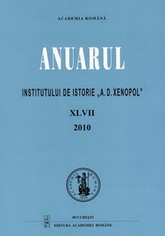Viaţa economică din Delta Dunării în perioada interbelică
Economic Life in the Danube Delta in the Interwar Period
Author(s): Dumitru ŞandruSubject(s): History
Published by: Editura Academiei Române
Keywords: state property; water management; fishing; land appropriation; poverty
Summary/Abstract: The study starts from the premise that 90% of the Romanian waters, with everything they produce, were the property of the state, while mass fishing was practiced especially along the Danube and in the Delta. The fishing system was institutionalised for the first time in 1896. It remained valid until 1912, when the fishermen from Dobrogea earned the right to fish in the state waters and freely market the fish, against a certain tax. From that year, the marketing of fish WAS monopolized, and the fishermen were economically affected by the prices set by the state, which determined many of them to give up this activity. The problems of the inhabitants of the Delta worsened during the First World War, when, almost throughout the entire period of Romania’s participation in the war, the region Dobrogea was occupied by the Central Powers. The inventory and the fishing facilities were damaged, the price of tools increased, some of the fishermen’s settlements disappeared, and the purchasing power of the inhabitants in the area was drastically reduced, which led to a decrease in their profits. In these circumstances, in the first years after the war, production decreased significantly, later going through a sinuous evolution, with dizzying highs and lows.
Journal: Anuarul Institutului de Istorie »A.D. Xenopol« - Iaşi
- Issue Year: XLVII/2010
- Issue No: 47
- Page Range: 301-320
- Page Count: 19
- Language: Romanian

